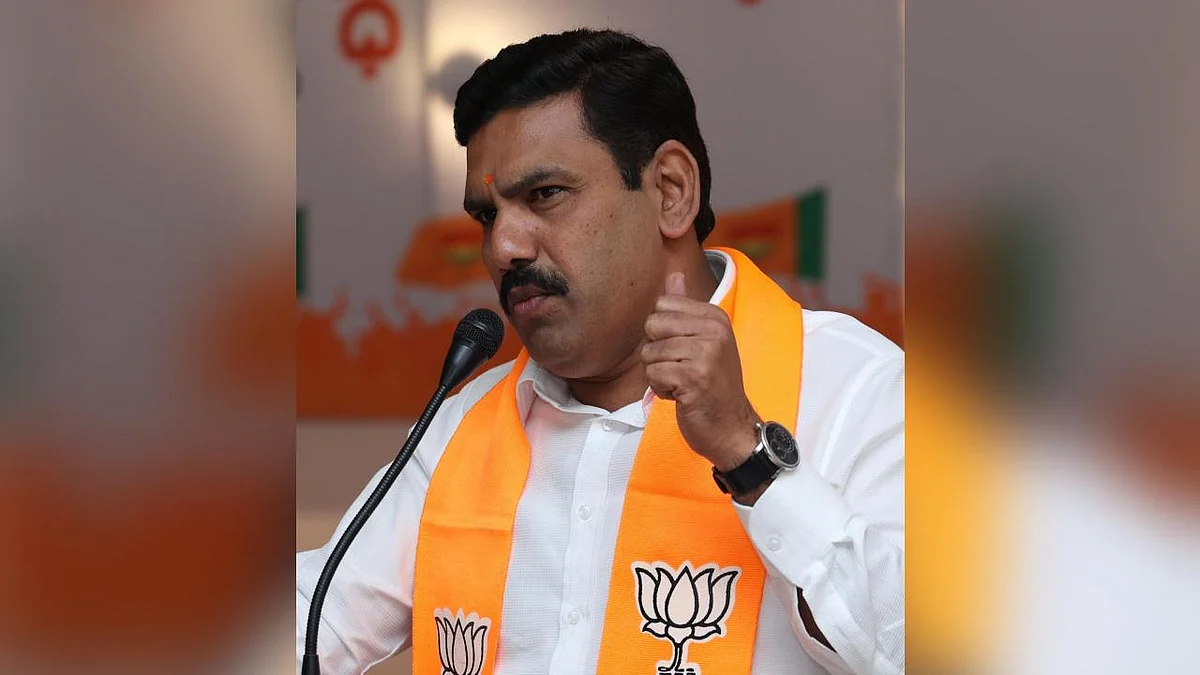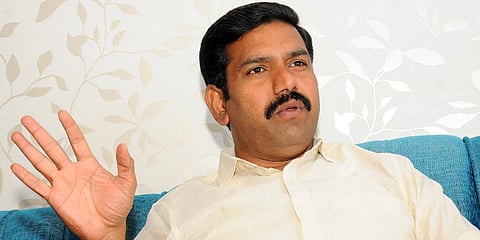The escalating urea shortage in Karnataka has spilled into a heated political battlefield, with the BJP accusing the incumbent Congress government of deliberately creating the crisis to shift blame onto the Central government. This ongoing controversy has rattled the agricultural community and intensified political rivalries just as the monsoon season fuels high demand for fertilisers crucial to crop production. At the heart of this storm is the urgent question of accountability for the severe distress caused to farmers in key regions across Karnataka.
The Karnataka urea crisis has exposed deep vulnerabilities in the agricultural supply chain that extend beyond just political blame games. Farmers reliant on timely fertiliser supplies face not only the risk of reduced yields but also financial instability that threatens their livelihoods. The delay and distortion in distribution networks mean that even those who receive fertilisers may grapple with inconsistent quality, forcing them to seek costly alternatives or compromise on crop nutrition, which could impact food security in the region over the longer term.
At the heart of the BJP’s criticism lies an allegation of collusion between brokers, suppliers, and segments of the state administration, which they claim has facilitated the hoarding and diversion of fertilisers into illicit markets. Such practices artificially create scarcity, inflating prices and undermining government efforts to subsidize inputs for farmers. If true, these systemic issues reveal a disturbing exploitation of the agrarian community, which depends heavily on fertilisers to maximize the benefits of a good monsoon and favorable climatic conditions.
Despite the contentious political backdrop, the government’s defenders argue that global supply chain disruptions play a decisive role. Conflicts affecting major exporters like Iran and fluctuating international commodity prices have constrained urea availability nationwide, not just in Karnataka. These external pressures have forced state officials to balance rationing against urgent demand, a task complicated further by the early arrival of monsoon rains expanding cultivation areas unexpectedly, requiring more fertiliser inputs than initially projected.
Farmers across Karnataka’s diverse agro-climatic zones have expressed a range of concerns, from outright scarcity in remote areas to inflated prices in urban market centers. Their voices underscore the lived realities behind political narratives. Grassroots farmer organizations have called for greater transparency in fertiliser allocations and delivery schedules, demanding detailed public disclosures to enable better planning and reduce the chances of black market exploitation. They also seek government-backed insurance or compensation schemes to mitigate losses linked to supply disruptions.

BJP’s Blistering Charges Against Congress
BJP state president BY Vijayendra Yediyurappa has been vociferous in his criticism, alleging that Karnataka’s Congress government has exhibited “criminal negligence” in managing fertiliser supplies. He claims the crisis is artificially manufactured, pointing to discrepancies between the large volume of urea received by the state from the Centre and the much smaller quantity that has effectively reached farmers. According to BJP sources, while Karnataka reportedly received over 870,000 metric tonnes of urea, only around 530,000 metric tonnes have been distributed, fueling fears of hoarding by unscrupulous middlemen and collusion with government officials.
Black Market and Fake Inputs Worsen Farmer Distress
Bharatiya Janata Party leaders also sounded the alarm on the proliferation of fake agricultural inputs, including counterfeit seeds and fertilisers circulating within the state. Vijayendra demanded immediate enforcement action, including criminal proceedings against companies distributing substandard products that threaten crop yields and farmer livelihoods. The BJP farmer wing has called for statewide protests to highlight these grievances and pressure the state government into urgent remedial action, especially in districts like Kalaburagi, Koppal, and Shivamogga where the impact has been severe.
Government Seeks to Defend Amid Growing Criticism
The Congress-led state government, through Agriculture Minister N Chaluvarayaswamy, pushed back against BJP allegations, attributing the shortage partly to a combination of early monsoon rains and an unprecedented expansion in cultivated acreage—up by nearly two lakh hectares. The minister detailed that these factors sharply increased fertiliser demand, placing unexpected stress on supply chains. Additionally, he cited international variables such as ongoing conflicts in Iran disrupting global urea flows and halted imports from China as exacerbating the local shortage.
Calls for Cooperative Action and Central Support
Minister Chaluvarayaswamy emphasized that despite assertions of mismanagement, the state government has consistently communicated the growing need for fertilisers to the Central government and local MPs, but alleged a lack of timely response from Union authorities. He urged political rivals to refrain from politicizing the sensitive issue, underlining commitments to ensure that farmers receive their required inputs without significant delay, even if short interruptions occur due to supply chain hurdles.
The current urea crisis in Karnataka continues to stir anxiety across the state’s rural landscape, stretching beyond the day-to-day disruptions and leaving farmers uncertain about their upcoming harvests. With each passing day of delay, sowing cycles are thrown into disarray, and the resulting uncertainty can ripple through local economies dependent on agriculture. The psychological toll of this instability is as palpable as the financial hardship, as families worry about how to maintain crops, pay off seasonal loans, and secure basic livelihoods in the face of spiraling input costs.
The friction between the two main political parties has not only intensified scrutiny on government performance but has also fueled a climate of mutual distrust among various stakeholders within the fertiliser supply chain. Traders and distributors, wary of being caught amid official crackdowns or political accusations, may limit their operations or resort to informal dealings, inadvertently worsening the accessibility crisis for end-users. This increased opacity makes it even harder for well-intentioned interventions to reach those most in need.
Compounding the operational challenges are communication gaps between the government and the farming community. Many villagers receive limited or confusing information about expected arrival schedules, distribution procedures, or government relief measures intended to address shortages. Misinformation spreads quickly in such an environment, heightening frustration and sometimes leading to confrontations at fertiliser depots or protests at district headquarters.
Efforts to initiate long-term reforms in the fertiliser sector face several barriers, not least of which is the interdependence between state and central authorities. The ongoing blame game can stall essential collaborations on infrastructure upgrades or digital tracking systems, which are critical to preventing future crises. Until political leadership can build a consensus around practical, transparent, and farmer-focused solutions, episodes like the current urea shortage could reoccur—each time deepening the cycle of mistrust and hardship.
Impact on Karnataka’s Agricultural Sector and Farmers
The shortage and alleged black market activities have sent ripples through Karnataka’s farming community at a critical stage of sowing and crop growth, threatening productivity and income security. Farmers report having to pay exorbitant prices for procured urea, often two to three times the official rates, squeezing already thin margins. The distress has been compounded by reports of poor-quality seeds distributed by certain firms, leading to crop failures and economic losses, further fueling public discontent and calls for government accountability.

Political Stakes Ahead of Assembly Session
With the monsoon session of the Karnataka legislative assembly underway, the BJP is preparing to aggressively corner the state government on the urea shortage and farm distress. The issue has become a flashpoint for broader debates over the Congress government’s handling of rural economies and social welfare programs. The BJP intends to demand explanations for alleged failures, including reduced budgetary allocations for fertilizer buffer stocks and discontinuation of farmer welfare schemes implemented under previous administrations.
Hope for Resolution Amid Rising Tensions
Despite the acrimony, both central and state officials have expressed willingness to explore solutions collaboratively, focusing on overcoming logistical bottlenecks, cracking down on profiteering, and enhancing farmer education on modern fertiliser technologies such as nano urea. Political rhetoric aside, stabilizing fertiliser availability remains imperative to the well-being of Karnataka’s farmers, who form the backbone of the state’s economy. The coming weeks will be critical as these rival narratives unfold, with tangible relief for farmers hanging in the balance.
The politics of the crisis come amid larger agricultural policy debates in Karnataka, where struggles over resource allocation, rural subsidies, and market access have long shaped voter sentiments. The BJP’s vocal push to hold the Congress government accountable reflects wider electoral strategies aimed at positioning themselves as champions of farmers’ rights and anti-corruption watchdogs. Conversely, Congress leaders assert their commitment to farmers’ welfare while highlighting challenges inherited from previous regimes and exacerbated by uncontrollable global factors.
Amid this political tug-of-war, there is also technological optimism centered around efforts to promote innovative fertilisers like nano urea. Advocates argue that modern inputs can reduce dependency on traditional chemical fertilisers, lowering costs and environmental impact. However, awareness and adoption remain uneven, and government agencies at both central and state levels face the dual task of promoting these technologies alongside ensuring uninterrupted supply of conventional fertilisers in the meantime.
Logistical bottlenecks in warehousing, transport, and last-mile delivery add further complexity to Karnataka’s fertiliser woes. Poor infrastructure and coordination between various agencies often delay distribution, aggravating shortages even when stocks are physically available. Addressing these systemic inefficiencies requires investments in supply chain modernization, better data management, and strengthening oversight mechanisms to minimize leakages and ensure equitable access for all farmers.

Finally, while the immediate focus remains on resolving the urea shortage, this crisis highlights the need for more holistic policy frameworks that integrate agricultural inputs, market reforms, climate resilience, and rural financial support. Karnataka’s experience serves as a cautionary tale for other states, emphasizing that political rhetoric must be accompanied by sustained administrative commitment and innovative solutions to secure the future of farming communities vital to India’s food security and economic stability.
Follow: Karnataka Government

